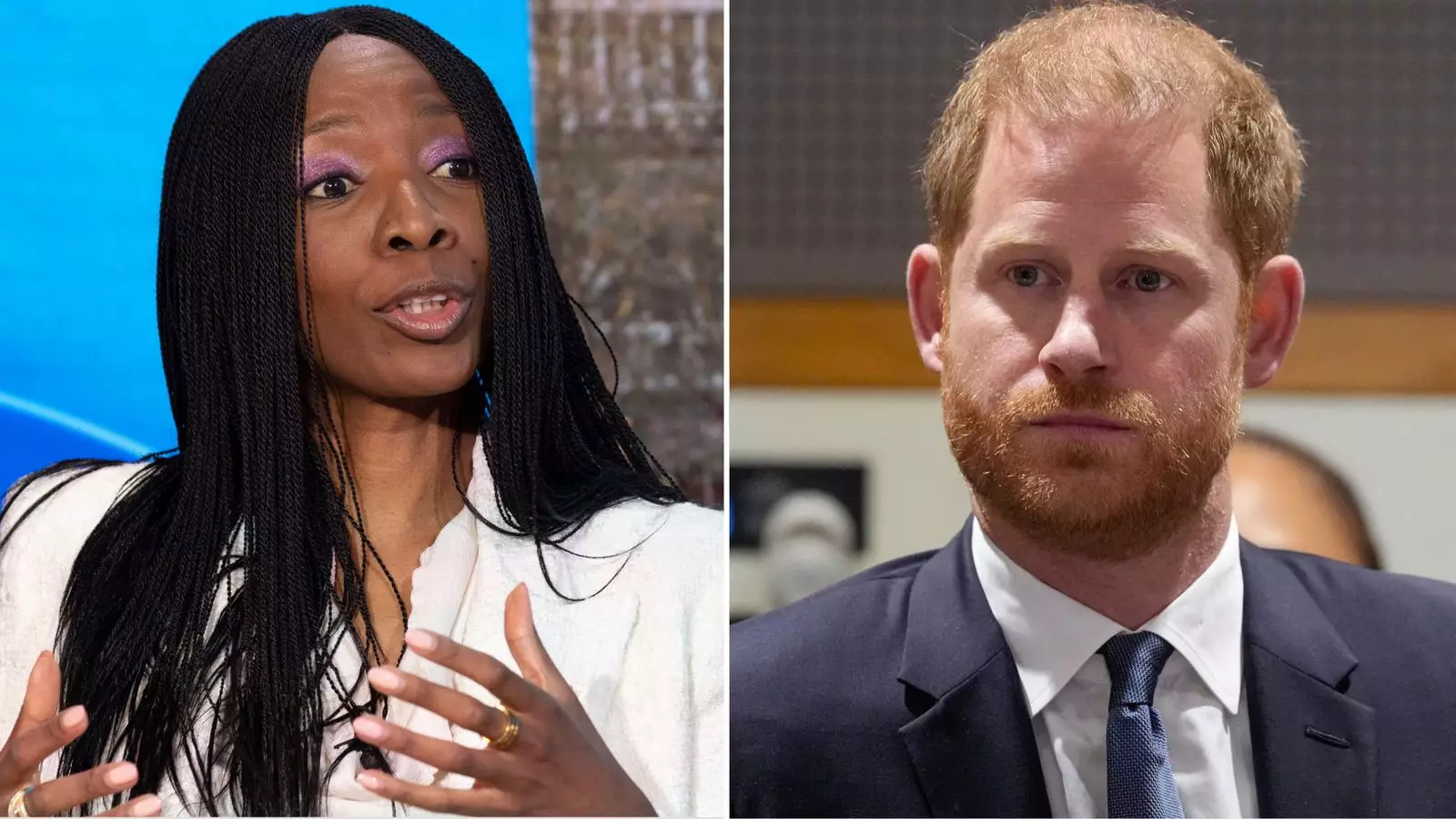Prince Harry’s recent departure from Sentebale, a charity he co-founded to honor his late mother, has sparked a fierce backlash, revealing deep divisions and internal disputes. The gravity of the situation intensifies when Dr. Sophie Chandauka, the chair of Sentebale, accuses Harry of “harassment and bullying at scale.” This situation is more than a mere scandal; it strikes at the heart of why celebrity-led charities should often be met with skepticism regarding their governance and leadership ethics.
Dr. Chandauka’s allegations suggest that behind the glitzy facade of philanthropy lies a dangerous game of power dynamics and media manipulation. The accusations launched against Prince Harry paint a picture of a public figure attempting to wield his influence to silence dissent within the organization. Whether the claims are valid or merely an avenue for personal grievances, they underscore a disturbing trend: the blending of celebrity influence with non-profit initiative can lead to toxic repercussions.
The Sussex PR Machine: An Unleashed Threat?
Harry’s departure has been characterized by what Dr. Chandauka refers to as the “unleashing of the Sussex [PR] machine.” This phrasing is laden with implications. It suggests that rather than focusing on the charity’s mission, the emphasis has shifted towards public image management—a common criticism of many celebrity endeavors. The implication that Prince Harry authorized damaging news against his own charity opens Pandora’s box regarding the ethical responsibilities of those in the public eye.
When an individual with such visibility chooses to exploit their platform, the ramifications can spiral out of control. Chandauka’s assertion that the media has been used as a tool to harass stakeholders leads to a question: In their quest for relevance and support, are these figures merely playing chess with human lives?
A Charitable Landscape: Governance and Integrity Issues
Dr. Chandauka’s statements evoke a broader concern surrounding governance in celebrity-founded charities. The claim that she faced “poor governance, weak executive management, abuse of power, bullying, and harassment” raises significant red flags for donors and supporters alike. How well are these organizations truly managed when the founders may prioritize personal interest over their mission?
The essence of a charity lies in its transparency and accountability. For those who have invested emotionally and financially in Sentebale, a perception of cronyism or manipulation could diminish trust and hinder fundraising efforts. Chandauka’s disciplined approach to addressing governance reform is laudable, but it raises concerns about the long-term viability of organizations entrenched in controversy.
The Victim vs. The Accused: Psychological Games in the Spotlight
Additionally, the public feud between Chandauka and Prince Harry highlights the perilous game of victimhood in celebrity cultures. The back-and-forth allegations resemble a sort of psychological warfare, where each party attempts to navigate their narratives through media engagement. Chandauka’s apparent insistence on playing the victim contrasts sharply with her professional role and could dilute her credibility. This leads to the disturbing reality in which the public discourse surrounding charitable work is manipulated for personal gain rather than genuine altruism.
Harry’s response—or lack thereof—further muddles the situation. Declining to confront the allegations against him directly raises questions regarding accountability and leadership in high-profile charitable organizations. Charities must navigate complex interpersonal relationships along with their missions; when allegations of misconduct arise, the fallout can jeopardize the futures of the communities they aim to serve.
In Search of Ethical Philanthropy
This unfolding saga serves as a harsh reminder that celebrity charity work is often rife with potential for ethical breaches and mismanagement. For the well-meaning individuals who donate to these causes, the reality is sobering: the very infrastructures that are meant to uplift are being compromised by personal and public squabbles.
In a world increasingly governed by algorithmic attention and media exposure, the intersection of fame and philanthropy must be approached with caution. The noble ideation of charity can become distorted when personal ambition overrules altruism, calling for a critical reevaluation of celebrity-led initiatives. The case of Sentebale showcases precisely how precarious that balance is, sparking crucial conversations about governance, ethics, and the true essence of giving in an age dominated by personality, image, and influence.


Leave a Reply